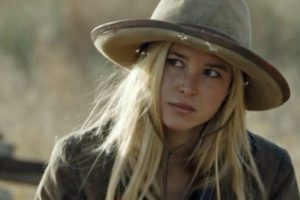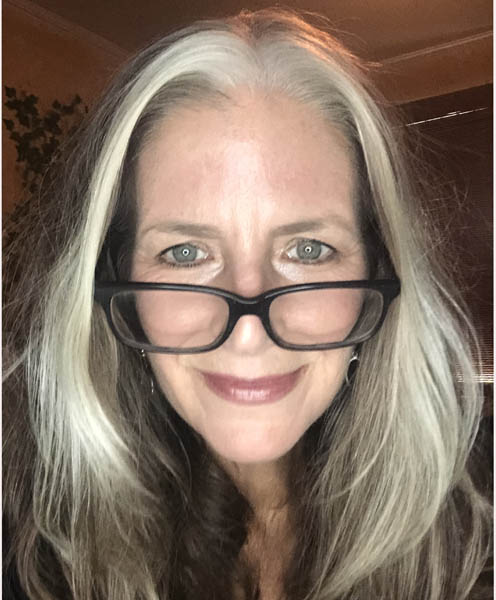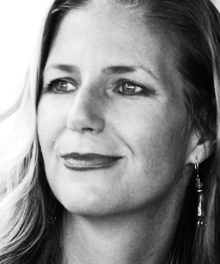When it comes to keeping up with pop culture, my husband and I are thoroughly lame. We’re typically five or ten years behind on all the big, buzzy streaming series, if we get around to watching them at all.
Which is why we’re currently feeling uncharacteristically cool, having just finished “1883,” one of the two “Yellowstone” prequels. It was initially released a year and 1/2 ago, but only recently came to Paramount + (our go-to channel) so we’re practically au courant.
For the record – lest we lose our “nerd” bona fides – we’ve not yet seen the newer prequel “1923,” and we haven’t even seen “Yellowstone,” the flagship series that launched a thousand spinoffs. Or, um, two so far. Apparently, we will be experiencing the much-ballyhooed Dutton family saga the old-fashioned way, in chronological order. A radical concept, eh?
Today, as I sit at my computer devouring news articles and commentary, searching for something relevant to opine on, my mind keeps drifting, instead, to “1883.” Why? Maybe because, unlike with the multiple real-life dramas unfolding – at home and in the world – everybody seems to agree about “1883.”
It’s no small thing, anymore, to find something everybody agrees on, especially when that agreement is of a positive nature. It’s deeply refreshing. Almost a miracle.
I started a discussion about “1883” on Facebook last week, assuming most folks had seen the show when it first aired, back in December 2021. I was correct. Everybody wanted to talk about it, and the comments were consistently effusive. One of my most conservative FB friends called the series “damn good.” One of the most devoted progressives I know deemed it “exquisite.”
And on it went. Comment after comment, superlative after superlative. My bridge-building, consensus-loving heart soared. My “1883” discussion was proving to be a Kumbaya moment!
I’m not sure why, exactly.
Maybe just because it’s a western? Though I’ve never been inordinately fond of westerns, I’m told they are deep in our cultural DNA.
From a 2016 article in The Guardian:
“The western has always been the American epic,” says Robert Thompson, director of Syracuse University’s Bleier Center for Television & Popular Culture, “It’s exciting and violent and huge. We don’t have a single text like The Iliad or The Odyssey but the western is our story.”
According The Guardian’s Stuart Miller, our love for the western ebbs and flows, but always abides, and is perennially ripe for revival. Especially following times of great social or political upheaval.
“Westerns never died off but few were made from 1980 to 2003,” he writes. “They returned with a vengeance after 9/11 and the invasion of Iraq. It was a time that sent people into shock and America was longing for a way to figure out what went wrong, who we are, what our values are and where we go in the future.”
In the same article, director Ti West says, “The story and the archetypes in westerns may be simple, but that allows you to use subtext to tie things into what is happening now.”
This makes sense. In fact, watching “1883,” I found myself wondering if creator Taylor Sheridan was making a veiled comment on the Covid pandemic with his depiction of Smallpox in the series. I’m trying to avoid spoilers here – some of you may be even less “on trend” in your viewing habits than we are – so I won’t elaborate. Besides, the connection may be totally coincidental. My mind went there, but my mind’s just like that.
Honestly, I don’t think any of the above has much to do with why I love “1883,” though the reference to Homer probably comes closest.
I love it for the poetry.
The larger-than-life, almost “literary” characters. The heart-stopping panoramas. The simple-complicated story of human survival that can’t be wrangled into one of your favorite political narratives… or mine.

Isabel May as Elsa Dutton in ‘1883’
And then there are the voiceovers of Elsa Dutton, the 17-year-old girl from Tennessee who narrates each episode. At first, they made me slightly uncomfortable. Her low, soulful drawl didn’t sound authentic to my southern ears, and her lyrical philosophizing seemed … over the top. Hyperbolic. Grandiose.
Example: Some called it the American Desert. Others, the Great Plains. But those phrases were invented by professors at universities. Surrounded by the illusion of order. And the fantasy of right and wrong. To know it, you must walk. Bleed until it’s dark. Drown in its rivers. Then its name becomes clear. It is Hell. And there are demons everywhere.
After an episode or two, her voice had won me over – authentic or not – and I’d decided that grandiose is good. This is an American epic, after all.
As such, Sheridan’s characters are a strategic mix of American archetypes, not “coincidental” at all. His male protagonists – the two men leading a group of would-be settlers across the treacherous Oregon Trail – both fought in the Civil War 20 years earlier, one for the Union and one for the Confederacy. (As the story moves forward, they move from grudging mutual respect to something like brotherly love.) The Union captain’s trusty sidekick is a Black man, a former slave and soldier, who maintains a quiet dignity and steady heroism throughout. The Comanche Indians who appear on the scene are cooperative and noble until a brutal attack turns them toward savagery. The bandits and horse thieves are white men without honor. The European immigrants on the trail are willing to give up everything – including their home – for the promise of freedom. And free land.
Though rife with death and punctuated with a hundred small horrors, “1883” is a beautiful fable. It works at the level of Myth, with a capital M. Not just history, but prophecy. Episode after episode, I found myself pondering not just what America was, but what America is, and what America could be.
Sam Elliot, Tim McGraw, and Faith Hill are the big stars who created the hype and attracted the eyeballs, and they are all splendid in their roles. I knew Tim McGraw was a fine actor, but had no idea his wife could do this! Her Margaret Dutton is a force of nature. And Sam Elliott is… well, Sam Elliott.
But it’s Isabel May’s Elsa Dutton who is the beating heart of it all, maybe because – like America – she’s complicated. Almost a living, breathing paradox. Both childlike and wise beyond her years, she is innocent and knowing, vulnerable and fearless, gentle and ferocious, radiantly feminine and a swashbuckling cowboy. She is Lightning Yellow Hair, and she is unforgettable. The other characters – though wonderfully embodied – are familiar archetypes. Elsa is something altogether new, but every bit as iconic. An instant classic. A heroine for the ages.
Every young girl who sees “1883” will long to be Elsa Dutton.
This middle-aged girl does, anyway.







